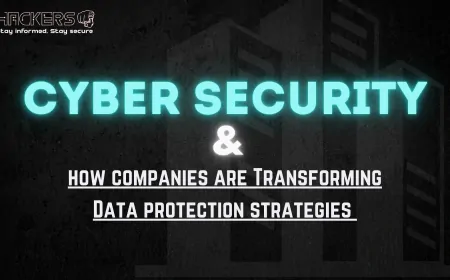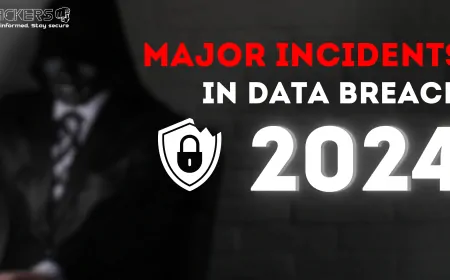Consequences of data breach
Discover the severe consequences of data breaches, including financial losses, legal ramifications, reputational damage, and the long-term effects on individuals and businesses. Learn how to protect yourself and your company from the risks associated with data breaches.

Introduction
A data breach can have severe and wide-ranging consequences, affecting businesses, individuals, and even entire industries. It occurs when unauthorized access is gained to sensitive, confidential, or personal information. Hackers may exploit vulnerabilities, insiders may mishandle data, or human error could expose critical details, leading to significant risks. Understanding these consequences is vital not only for those directly affected but also for organizations seeking to prevent such incidents. This article delves into the profound impacts a data breach can have, discussing financial losses, reputational damage, legal fallout, and more.
1. Financial Loss
Financial loss is one of the most immediate and visible consequences of a data breach. Organizations can incur substantial direct costs, including legal fees, forensics, notification costs, and compensation for affected customers. The financial repercussions may extend well beyond the immediate response and affect the organization’s bottom line for years to come.
| Financial Impact | Description | Example |
|---|---|---|
| Direct Costs | Immediate financial burden involves investigations, legal costs, and customer notifications. | Companies like Target and Equifax faced multi-million-dollar lawsuits and investigation costs. |
| Reputation Damage | Loss of consumer trust often leads to a decline in sales and long-term revenue losses. | Target, after its 2013 breach, witnessed a significant dip in consumer confidence and revenue. |
| Regulatory Fines | Regulatory bodies may impose fines if organizations fail to comply with data protection laws. | The GDPR fine on British Airways was £183 million after a breach exposed 500,000 customers. |
| Business Disruption | Operations may be temporarily halted, affecting productivity and overall performance. | The Sony PlayStation breach in 2011 forced the company to shut down its services for weeks. |
Extended Financial Impact
The true extent of the financial losses caused by a breach may not be fully realized until after the event. Revenue loss, combined with the potential for long-term legal and operational costs, can devastate an organization's financial health. Additionally, shareholders may lose confidence in the company, leading to a drop in stock prices, which can further harm the company’s market position.
2. Reputational Damage
Reputational damage is another grave consequence of a data breach, and it can have long-lasting effects. When an organization’s ability to protect customer data is called into question, trust is lost. Customers are unlikely to continue their business with companies that fail to secure their personal information, which can result in customer churn and a tarnished brand image.
| Reputation Impact | Description | Example |
|---|---|---|
| Loss of Customer Trust | Consumers often abandon brands that fail to secure their data. | Equifax lost millions of customers and faced backlash after its 2017 breach exposed sensitive personal information. |
| Negative Media Attention | Media outlets often highlight and sensationalize the breach, making it more difficult for companies to recover. | News of breaches at companies like Facebook and Yahoo continues to impact their public image. |
| Public Apology and Actions | Companies are often forced to make public statements and offer compensations like credit monitoring to affected individuals. | After the Home Depot breach, the company offered free identity theft protection to millions of customers. |
Extended Reputational Damage
Reputation recovery from a data breach is a complex process. It's not just about the damage done immediately after the breach, but also how the company handles the aftermath. In some cases, organizations may never fully recover their reputation, as many consumers remain cautious about engaging with brands that have been previously compromised.
3. Legal Consequences
The legal fallout from a data breach can be severe. Legal consequences often involve lawsuits from affected individuals or regulatory authorities, government investigations, and potential criminal charges. Organizations can be held liable for damages resulting from the breach, especially if they are found to be negligent in their data protection efforts.
| Legal Impact | Description | Example |
|---|---|---|
| Lawsuits | Individuals whose personal information is exposed may file lawsuits for damages. | The 2017 Equifax breach led to class-action lawsuits seeking damages for data misuse. |
| Regulatory Scrutiny | Regulatory bodies may conduct investigations to determine if the company violated privacy laws. | The U.S. Federal Trade Commission (FTC) has fined companies like Facebook for failing to protect user data. |
| Criminal Charges | In cases of insider threats or malicious external attacks, criminal charges can be pursued. | The breach of Capital One in 2019 led to criminal charges against the hacker responsible. |
Extended Legal Impact
Companies may also face additional regulatory scrutiny and fines for non-compliance with data protection laws such as GDPR, HIPAA, or CCPA. These laws often impose strict requirements on how organizations handle personal data. Companies that fail to meet these requirements can face significant penalties, which might dwarf the costs of recovering from the breach itself.
4. Identity Theft and Personal Impact
For individuals, one of the most personal consequences of a data breach is identity theft. Sensitive information such as Social Security numbers, credit card details, and other personal identifiers can be stolen and used maliciously. The long-term effects of identity theft can include financial loss, credit damage, and emotional stress.
| Personal Impact | Description | Example |
|---|---|---|
| Identity Theft | Stolen personal data is often used to open fraudulent accounts, apply for loans, or make unauthorized purchases. | Target's 2013 breach compromised 40 million credit and debit card accounts, leading to widespread fraud. |
| Financial Loss | Victims of identity theft may experience financial loss and incur expenses while resolving fraudulent activity. | Individuals may need to spend hours disputing charges and repairing their credit. |
| Emotional Stress | The emotional toll on individuals who fall victim to identity theft can last for years. | Many people report feelings of violation and stress while working to fix their identity after a breach. |
Extended Personal Impact
In addition to financial and emotional consequences, victims of identity theft must often take steps to monitor their credit for years, blocking fraudulent accounts and safeguarding against future threats. This process can be time-consuming and emotionally draining.
5. Business Continuity and Operations
Data breaches can significantly disrupt an organization’s ability to continue its normal operations. Following a breach, companies may have to shut down systems for investigation, fix vulnerabilities, and bolster their defenses, leading to potential service downtime, lost revenue, and decreased productivity.
| Operational Impact | Description | Example |
|---|---|---|
| IT System Downtime | Systems often need to be taken offline for forensic investigations or remediation, disrupting daily operations. | Following the 2014 eBay breach, the platform was forced to reset user passwords for millions of accounts. |
| Increased Cybersecurity Costs | After a breach, organizations must invest in improving their cybersecurity infrastructure to prevent future attacks. | Companies like Yahoo and Sony were forced to invest in better security measures after major breaches. |
| Employee Distraction | Employees, especially IT teams, may be diverted from regular work to focus on breach containment and resolution. | After the Capital One breach, the company’s IT team spent extensive resources addressing the vulnerability. |
Extended Operational Impact
Beyond the immediate disruption, breaches often lead to long-term adjustments in the organization’s cybersecurity posture. The process of restoring trust and operational stability can take months or even years, impacting both employee productivity and customer engagement.
Conclusion
Data breaches are no longer a rare occurrence they’re a growing threat that can have devastating consequences for businesses and individuals alike. The financial, legal, and reputational damage can be severe, and recovery can be a long and costly process. For organizations, it’s imperative to implement robust cybersecurity measures to prevent such breaches from occurring. On an individual level, practicing vigilance, such as regularly monitoring accounts and using strong passwords, can help mitigate the damage caused by identity theft or fraud. Prevention and preparedness are key to reducing the risks associated with data breaches.
(FAQs)
1. What is a data breach?
Answer: A data breach occurs when unauthorized individuals or entities gain access to sensitive or confidential information. This information can include personal details, financial data, or trade secrets. The breach can be intentional (via hacking) or accidental (through human error or system flaws).
2. What are the immediate financial consequences of a data breach?
Answer: The financial impact of a data breach can include legal fees, investigation costs, notification expenses, and fines imposed by regulatory bodies. Companies may also face loss of revenue due to reputational damage, which can significantly affect their long-term financial performance.
3. How does a data breach affect a company’s reputation?
Answer: A data breach can severely damage a company's reputation, as consumers lose trust in businesses that fail to protect their personal data. This leads to decreased customer loyalty, potential loss of business, and negative media attention that can tarnish the brand’s image for years.
4. What legal consequences follow a data breach?
Answer: Companies responsible for a breach may face lawsuits from affected individuals and regulatory scrutiny. Legal consequences can include class-action lawsuits, government investigations, and fines for failing to comply with data protection regulations such as GDPR or HIPAA.
5. How can data breaches lead to identity theft?
Answer: When personal data such as Social Security numbers, credit card details, or other identifiers are exposed in a breach, malicious actors can use this information for identity theft. This can result in financial loss, credit damage, and significant emotional distress for victims.
6. What are the long-term effects of a data breach on individuals?
Answer: Beyond financial loss, individuals affected by a data breach often experience long-term emotional distress and the laborious process of restoring their identity. Victims may have to spend months or even years monitoring their credit and securing their personal data.
7. Can a data breach cause a business to shut down?
Answer: In extreme cases, a data breach can have such a significant impact that it disrupts operations to the point of business closure. While most companies recover, they may face long-term issues such as declining sales, reduced customer confidence, and financial instability.
8. What role do regulatory fines play in the aftermath of a data breach?
Answer: Regulatory fines are often imposed on companies that fail to meet data protection standards or fail to report breaches within the required timeframe. Laws like the GDPR in Europe and CCPA in California require businesses to adhere to strict data protection rules, and violations can result in substantial penalties.
9. How can a company minimize the damage caused by a data breach?
Answer: Companies can minimize damage by acting swiftly to contain the breach, notifying affected individuals, offering credit monitoring services, and improving cybersecurity measures. Transparency with customers and stakeholders is crucial for rebuilding trust.
10. How can consumers protect themselves from the consequences of a data breach?
Answer: Consumers can protect themselves by regularly monitoring their financial accounts, using strong and unique passwords, enabling multi-factor authentication, and keeping an eye out for any signs of fraud or identity theft. Additionally, they should take advantage of any credit monitoring services offered by companies following a breach.
Tags:
What's Your Reaction?































































